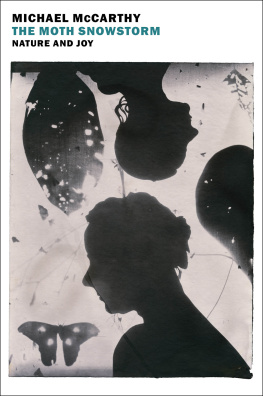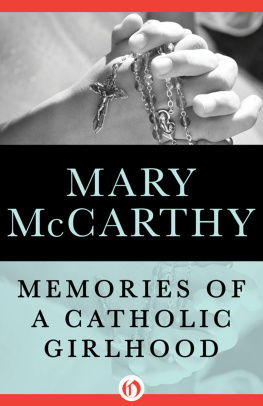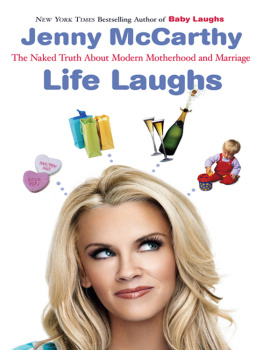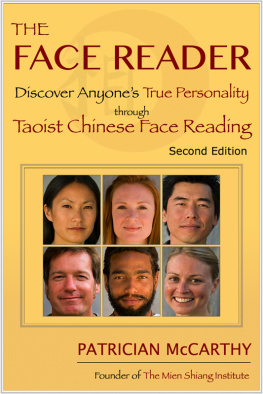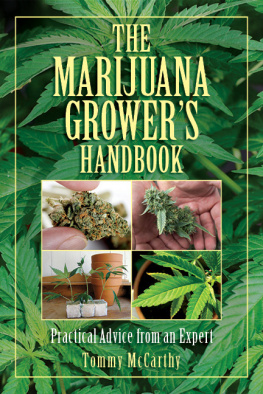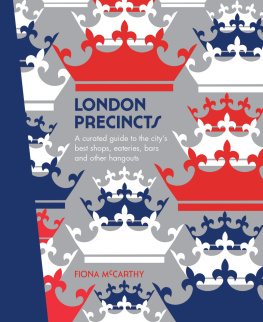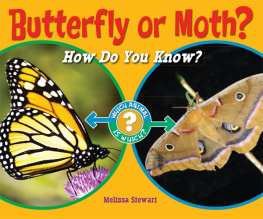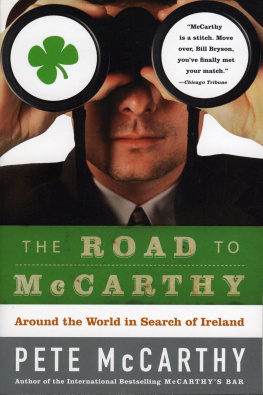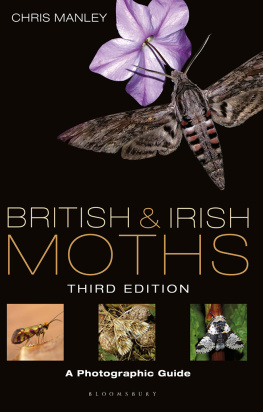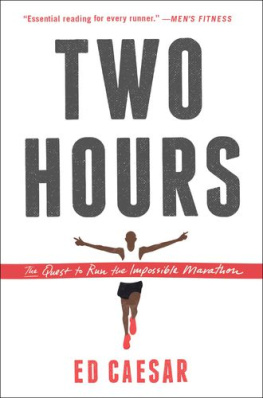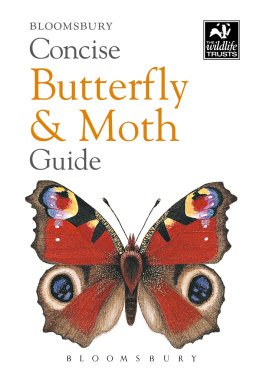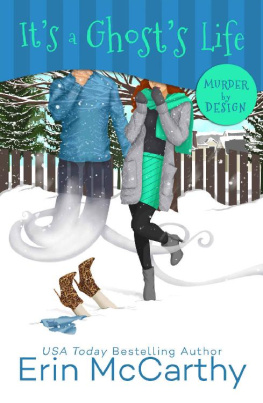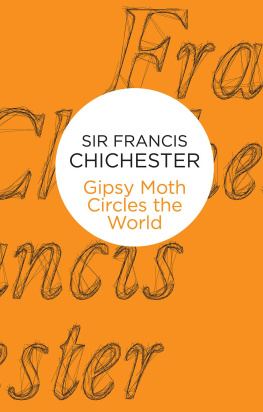The Moth Snowstorm
Nature and Joy
MICHAEL McCARTHY
NEW YORK REVIEW BOOKS

New York
THIS IS A NEW YORK REVIEW BOOK
PUBLISHED BY THE NEW YORK REVIEW OF BOOKS
435 Hudson Street, New York, NY 10014
www.nyrb.com
Copyright 2015 by Michael McCarthy
All rights reserved.
Library of Congress Cataloging-in-Publication Data
Names: McCarthy, Michael, approximately 1947
Title: The moth snowstorm : nature and joy / by Michael McCarthy.
Description: New York : New York Review Books, 2016. | Series: New York Review Books classics | Includes index.
Identifiers: LCCN 2016012696 (print) | LCCN 2016016596 (ebook) | ISBN 9781681370408 (hardback : alkaline paper) | ISBN 9781681370415 ()
Subjects: LCSH: EnvironmentalismPhilosophy. | Wildlife conservationPhilosophy. | Wilderness areasPhilosophy. | McCarthy, Michael, approximately 1947Childhood and youth. | McCarthy, Michael, approximately 1947Philosophy. | JoyEnvironmental aspects. | Philosophy of nature. | NatureEffect of human beings on. | Endangered species. | Environmental degradation. | BISAC: NATURE / Environmental Conservation & Protection. | NATURE / Ecosystems & Habitats / General.
Classification: LCC GE195 .M425 2016 (print) | LCC GE195 (ebook) | DDC 304.2/8dc23
LC record available at https://lccn.loc.gov/2016012696
For a complete list of titles published by New York Review Books, visit www.nyrb.com or write to: Catalog Requests, NYRB, 435 Hudson Street, New York, NY 10014.
ISBN 978-1-68137-041-5
v1.0
To the memory of Norah
What would the world be, once bereft
Of wet and of wildness? Let them be left,
O let them be left, wildness and wet;
Long live the weeds and the wilderness yet.
Gerard Manley Hopkins, Inversnaid
Contents
1
A Singular Window
In the summer of 1954, when Winston Churchill was dwindling into his dotage as British prime minister, the beaten French were withdrawing from Indochina, and Elvis Presley was beginning to sing, my mothers mind fell apart. I was seven and my brother John was eight. Norah our mother was forty years old and was a teacher, although she had given up teaching when we were born. She came from a poor family but had won scholarships and been well educated, and was well read with a literary bent; she had corresponded with Pdraic Colum, he who wrote She Moved Through the Fair, after the Irish poet had struck up a friendship with her father, a merchant marine steward, on a transatlantic voyage; she had a novel sketched out (it was about a paediatrician who was wonderful with children and terrible with everybody else). She was gentle and kind to a fault, entirely unselfish and wholly honest, and a deeply religious Catholic.
Her mind had begun to fray during the long absences of my father Jack, who was a radio officer on the Queen Mary. These were the final glory days of the Cunard ocean liners, and it might be said that his life sailing regularly between Southampton and New York was glamorous; certainly it was more so than the life he found when he came home to our small terraced house in Birkenhead, the town across the River Mersey from Liverpool, for two weeks every three months. He was not loving, either as a husband or a father he did not know how to love although he was not a bad man; but he covered up his lifelong insecurity with bluster, which too often turned into bad temper. The ten-year marriage, doctors clinically recorded later, had been moderately happy.
In her long isolations, bringing us up, my mother was closely supported by her well-meaning but bossy sister Mary and Marys biddable husband Gordon, who were childless, but in 1953 Mary and Gordon spent several months in America with friends they contemplated emigrating and it was during this time, when she was even more cut off, that my mothers psyche began to wander. When Mary and Gordon returned they saw a change in her, and as 1953 became 1954 Norah began to behave strangely; she went missing for a day and was found twenty miles away, having walked alone for many hours. She grew increasingly troubled as the year went on and the climax came in the summer when she threw herself upon the mercy of Mother Church, which sixty years ago straitly governed the lives of the Irish Catholic families of Merseyside, and Canon Quinn, iron-fisted ruler of the parish of Our Lady, decreed she should be sent to an asylum.
No one could stand against this because no one understood what was wrong with her, other than that her mind was obviously in turmoil and that she was greatly distressed. As were the rest of the family: Jack and Mary and Gordon and other close relatives were not only at a loss but also ashamed, since this was well before R. D. Laing turned mental illness into martyrdom, and the best my father could do was borrow the money for her to go as a private patient, and off to the mental hospital she went, from whence, as was pointed out to me much later, you did not, in those days, often emerge.
So it might have been with her, for the doctors who treated her were equally perplexed and were unable to offer her anything other than electro-convulsive therapy, high-voltage shocks to the head, before each session of which she thought she would die; but after several weeks, one day, just like that, a particularly perspicacious psychiatrist suddenly grasped it, and made an opening into her anguished spirit that paved the way for her eventual recovery (circumstances I discovered forty-one years later when I contacted the hospital and found that, miraculously, they still held her notes, which they released to me).
Thus, after nearly three months, Norah came back; but when she had gone away, in the August, our family life had been blown to bits. My father could not hold it together; he was a distant, irritated figure, impatient with John and me, and anyway he was still away at sea, so Mary took us in charge. She sold our house she sold our house! took us into her home in Bebington, a nearby suburb, and offered us kindness, but the damage was done. Johns stability was destroyed. Decades afterwards I met the woman who had been his teacher, Miss Dowling, and she told me that when he came into the class that September he would sit staring ahead and bending wooden rulers between his hands until they broke, one after another he was eight years old and she said she told the class, we all have to be kind to John and not make fun of him, because he is very upset because his mum has gone away. From then on his instability was life-long and meant that he struggled to cope with all aspects of existence (apart from the piano keyboard, at which he was in charge). He had paid the price for understanding. Not rationally. Nobody understood rationally what had happened to Norah, no one at all, until her hospital notes reached me half a lifetime later. But John, a sensitive boy that little bit older, had understood it fully with his emotions; he felt what she was going through and defended her fiercely against the wallowing, helpless, uncomprehending adults, and the knowledge was more than he could bear.
I was worse than uncomprehending; I was indifferent. At seven years old, I was not in the least bit concerned that I had lost my mother. How bizarre that seems, written down. Many years on, when I began to talk about it, to try to sort it all out, I learned that this was a Coping Strategy. Golly, I thought. Did I have a Coping Strategy? All I remember having is nothing. Being not bothered, not in the slightest, that she had gone away with no promise of return; and this attitude slumbered inside me through childhood, adolescence and long into manhood, until my mother died, my mother with whom I had by now built bridges and come to adore before all others, and I found that I could not mourn her. Just as I had been indifferent when she first went away, I found to my consternation that I was indifferent now when she went away for ever and the life I had blithely put together on top of the gaping cracks, pretending they were not there, began to unravel, and I set out on the long road to somewhere else.

